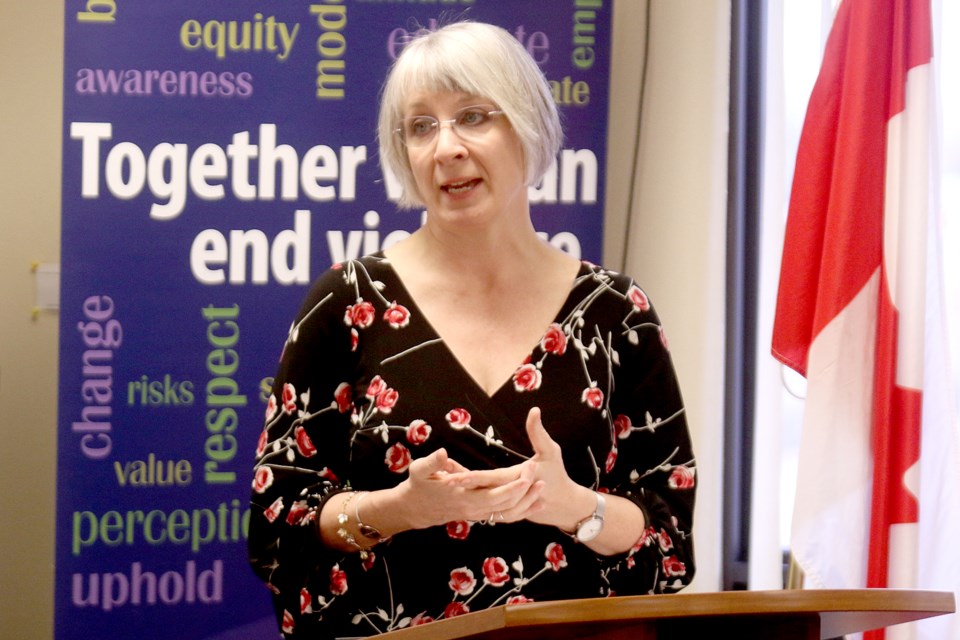THUNDER BAY – The federal government is spending $995,000 over five years to help schools throughout the region teach students about healthy boundaries and relationships.
The Fourth R program, who officially received the funds from the Public Health Agency of Canada, provides curriculum units on personal safety and injury prevention, substance use, addictions and related behaviours, human development and sexual health and healthy eating.
Marianne Stewart on Wednesday said if students have healthy relationships they feel more connected, it will create a more positive school climate and ultimately will lead to greater creative safety.
Stewart, the healthy relationship co-ordinator for the youth violence prevention project at the Thunder Bay District Health Unit, added just eight years ago the city had the highest level of intimate partner violence in all of Canada, particularly affecting women aged 12 to 24, which can be prevented with early intervention at the school level.
“We’re reaching kids before they get to that age and giving them these relationship skills,” Stewart said.
“We want to impart them with knowledge, but also behaviours and attitudes. That’s a huge thing with students. We want to change those behaviours so students are not accepting of teen dating violence and also have the skills to deal with it.”
Thus, if students are in unhealthy relationships or risky situations, they can use tactics like refusal and negotiation to extricate themselves.
“They’re empowered to get out of those situations,” Stewart said, adding they want students not to grow up with traditional relationship stereotypes.
The program will begin in Grade 9 classrooms, at five regional boards and two education agencies.
Jackie Corbett, vice-principal at the Matawa Learning Centre, said she sees plenty of value in the program, particularly its Indigenous component.
“It speaks to the history of Indigenous people, but it also combines Ontario health curriculum and teaching strategies that are perhaps more relevant to First Nations youth and helping them understand the context of the program,” Corbett said.
“For example there are sharing circles that can be utilized. We can bring elders in to help do some teachings that can really help spread the message about the Fourth R program within our student body.”
Thunder Bay-Superior North MP Patty Hajdu, who took a shot at the Conservative government for promising to cut the number of health units in the province from 35 to 10, said it was an important program to support.
Violence is endemic in Canadians’ lives, and that must change, Hajdu said.
“Programs like this are really important. They’re regionally specific. They support the great work that communities or public health units and educators are doing already, and they help those players really amplify what they’re doing in the community already.”
A portion of the money provided by Ottawa will be used to evaluate the program through the Centre for Rural and Northern Health to learn what works and what doesn’t when it comes to teen dating violence prevention.
